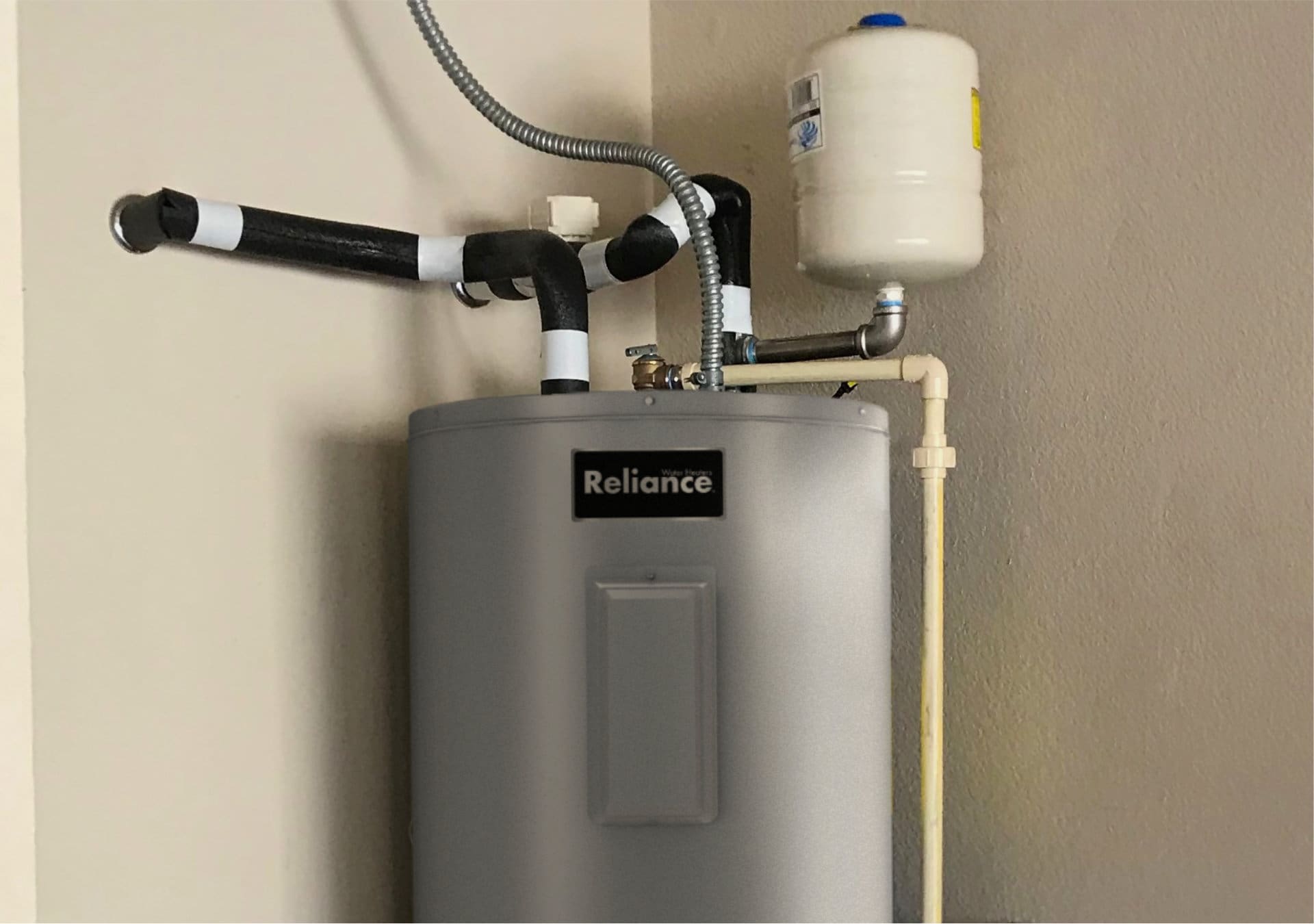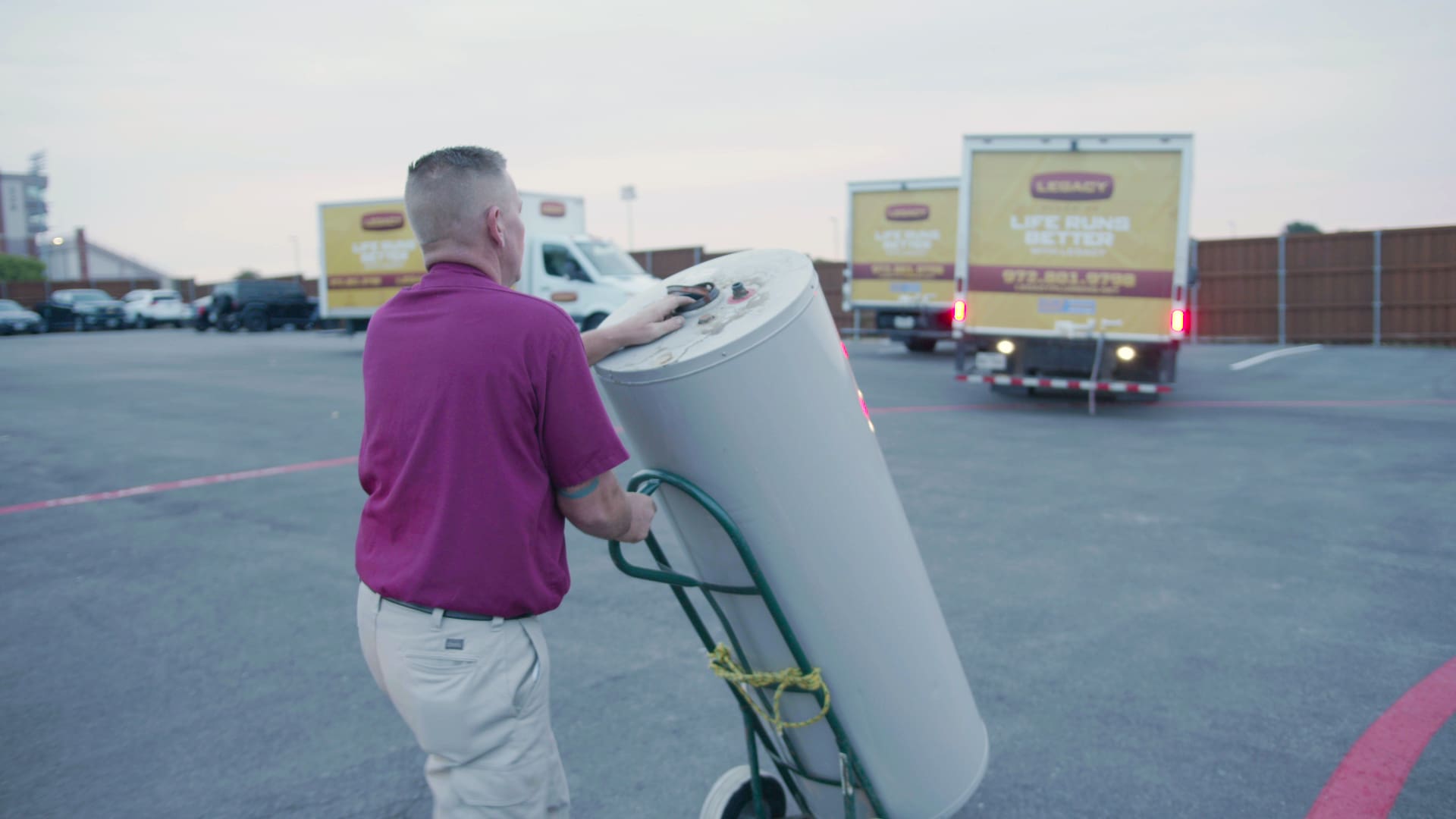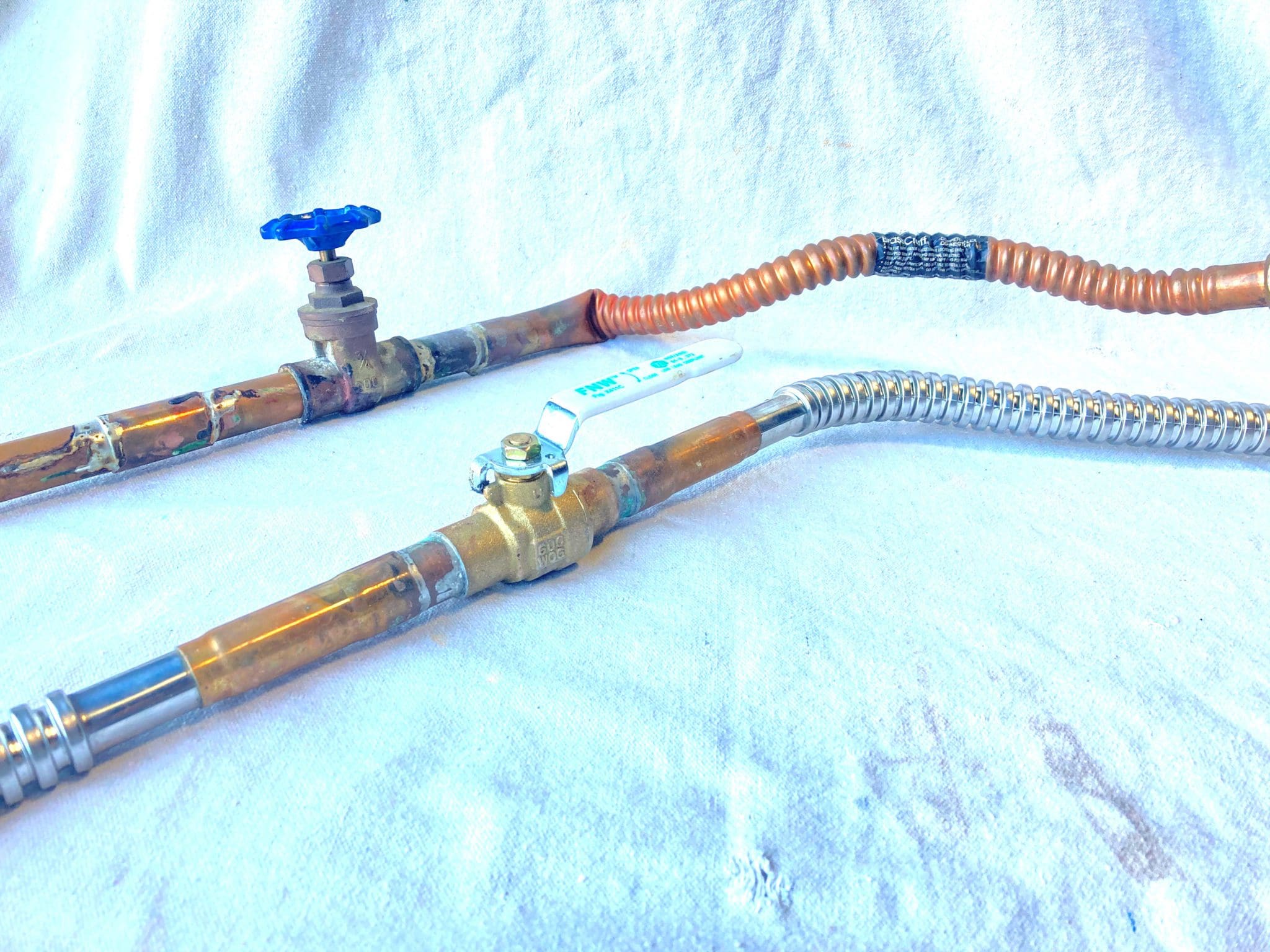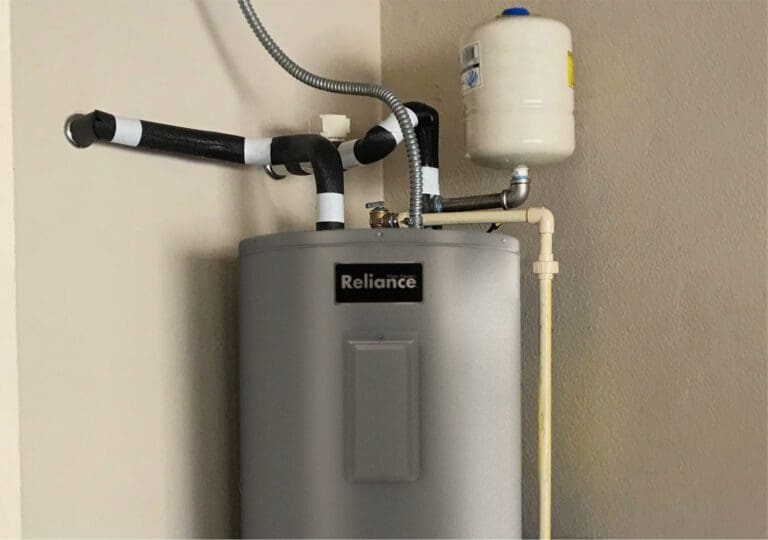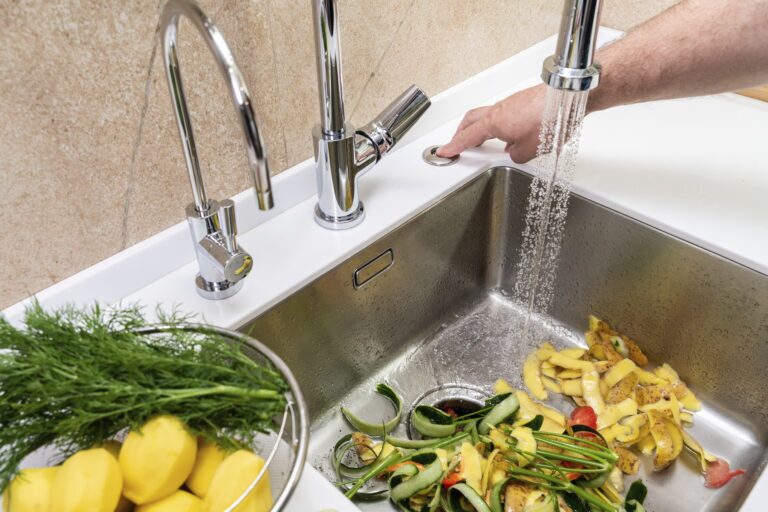As seen in the December 2024 Frisco Style magazine:

HOW TO CHOOSE THE RIGHT WATER HEATER?
Hot Water is an essential part of your daily routine; from showering to cooking, we rely on our water heaters to function correctly day and night, but with so many different styles, how do you know which to choose?
Our water heater options include:
- Tank-Style Water Heaters: Traditional models that store and heat water in a tank.
- Tankless Water Heaters: Provide hot water on demand, saving energy and space.
When choosing a water heater, consider:
- Capacity: Ensure it meets your household’s hot water needs.
- Energy efficiency: Look for models with high energy factor (EF) ratings.
- Fuel type: Options include electric and gas models.
- Space requirements: Tankless models can be an excellent solution for homes with limited space.

WHAT IS THE DIFFERENCE BETWEEN A GAS, ELECTRIC, AND TANKLESS WATER HEATER?
Gas Water Heaters: Natural gas water heaters are the most common water heaters in North Texas. Most have a rated capacity of 50 gallons. New gas tank-style water heaters have many more safety features than before—the biggest is a closed-combustion design. Gas water heaters are efficient and very reliable over the long haul.
Electric Water Heaters: 50-gallon electric tank-style water heaters are also very common. Typically, these are installed in neighborhoods that do not supply gas hookups. They usually last between 13 and 15 years before the tank starts to leak. It is not uncommon for one of the heating elements or thermostats to fail before that. This can be changed out without replacing the entire tank.
Tankless Water Heaters: Tankless technology has been around for a long time but has only recently taken off in the DFW area. Many new homes are being built with natural gas tankless water heaters pre-installed. Some are installed in the exterior wall, some in the garage, and some in the attic.
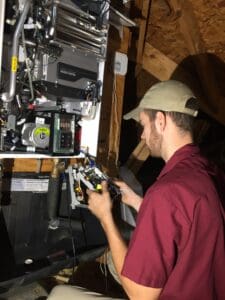
WHAT SHOULD EVERY HOMEOWNER CHECK ON THEIR WATER HEATER?
Check the Age – Tank-style water heaters have a pretty consistent life expectancy. As a homeowner, it is important to keep track of how old your water heater is so that you won’t be caught off-guard when it stops working or starts leaking.
Gas water heaters typically last about 10-12 years, depending on the water quality in North Texas. Electric water heaters have a slightly longer lifespan, around 13-15 years.
It is considered best practice to replace gas water heaters when they are around ten years old if they are located in areas where a leak could result in significant damage (like in the attic or hallway closet). Electric water heaters should be replaced after 13 years.
Check the rating sticker on the front of the water heater to see the printed build date. If there is no “build date,” write the serial number instead. You can look up the manufacturer online to see how to determine the build date from the serial number.
Look for Corrosion on the Water Fittings / Water in the Pan – Look carefully at the water pipes connecting to the top of the water heater. These fittings are often victims of different types of corrosion. If you see moisture, heavy rust-like buildup, or a lot of white powdery buildup, these are signs of slow leaks.
While checking the piping and the emergency drain pan under the water heater, water in the pan is a sign of an active leak—even if you can’t see where the water is coming from.
Check the Venting Connections – Gas water heaters have an exhaust vent connected to the top to safely remove combustion fumes outside your home.
Other than a small gap where the vent connects to the top of the water heater, the vent should look solid and continuous up to where it exits the building. It is vulnerable to being disconnected by high winds during a storm or roofing work performed. If there is a place where it is disconnected or not sitting directly over the water heater, the water heater could spill exhaust gas into your home.
Expansion Tank Connection/Age – An expansion tank, usually about the size of a basketball, is installed on the cold-water line, feeding the water heater. Its purpose is to prevent excessive pressure buildup caused by the water heating up in a closed system.
In DFW, many cities require an expansion tank for every water heater installation. In other cities, it is only required when you have a closed-loop system. If you have an expansion tank, it is important to inspect the connection periodically to make sure you don’t see signs of corrosion. They also frequently fail internally and stop protecting your system. It is best practice to replace them proactively every five years.
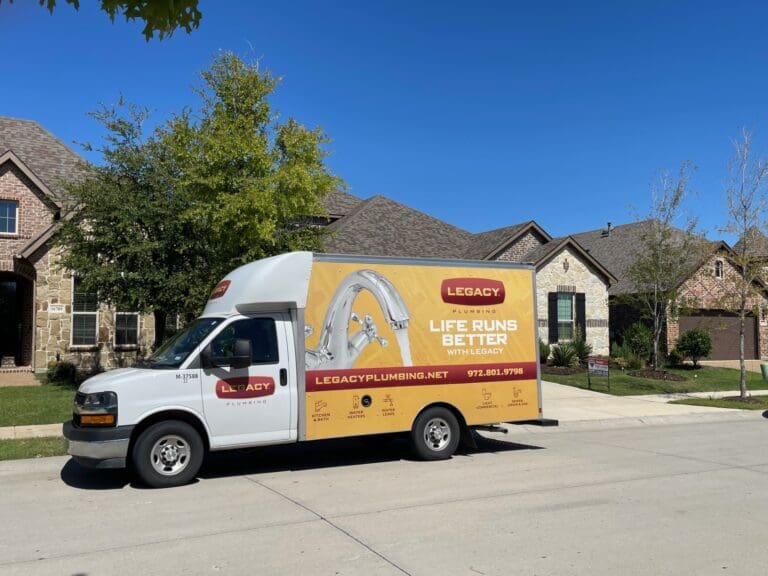
WHY SHOULD I CHOOSE A PROFESSIONAL PLUMBER LIKE LEGACY FOR WATER HEATER REPAIRS AND REPLACEMENTS?
Legacy Plumbing specializes in water heater service, helping thousands of North Texas homeowners repair or replace their water heaters.
- Communication – We prioritize communication with homeowners, providing options and explanations for each step of the process.
- Cleanliness – We ensure the work area is cleaner than we found it.
- Quality – We use high-quality plumbing parts and materials, and our installation methods consistently surpass the minimum required by the plumbing code. Our work is entirely third-party inspected to ensure it passes all city inspections.
- Warranties – We back our water heater replacement with a 9-year parts and 4-year labor standard warranty and offer a 12-year parts and 6-year labor extended warranty, ensuring a worry-free new plumbing system.




